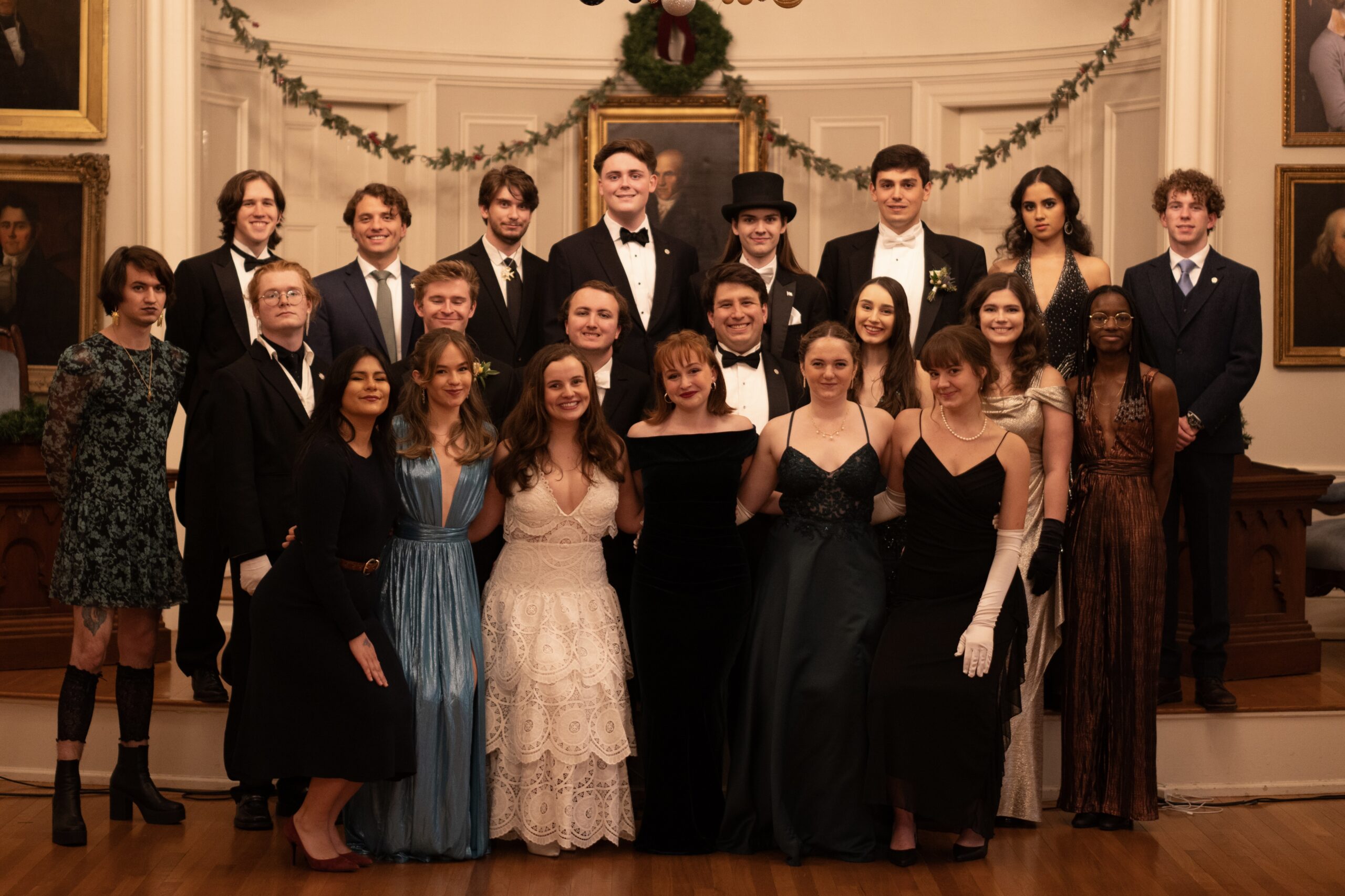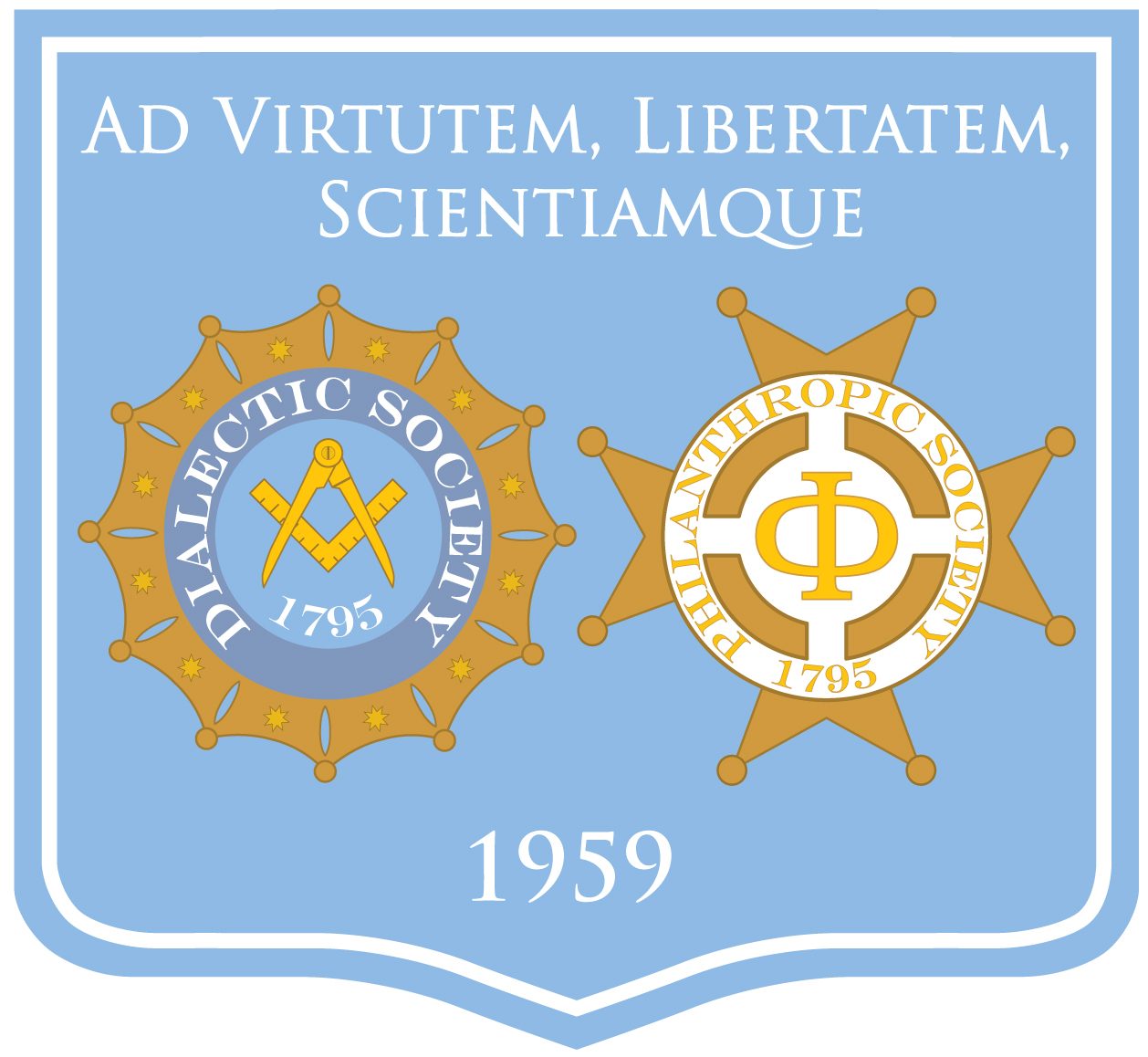Since the year UNC opened to students, 1795, the Dialectic and Philanthropic Societies have been far more than just debating societies. Although debates are the focus of our Monday night programs, we conduct a wide variety of other events and activities. At times a form of student government, a social venue, and even a sort of academic advising organization, these societies have defined the college lives of generations of students in a wide variety of ways.
Currently, Senators staff a number of committees and fill Society offices with responsibilities in these other areas. Committees organize social Friday or “Phiday” night events, plan trips to visit societies at other universities, maintain the Society graveyard plots in the Chapel Hill Cemetery, organize the Society graduation ceremony (complete with diplomas in Latin nearly unchanged from 200 years ago), and put together a dance (the December and the April) each semester. In addition, the Historian organizes the Margaret Evans Lerche Lecture, given by an authority in a UNC-related topic each University Day, and the Mangum Medal, a medal for oratory given to a senior each Spring. The Societies also help manage a collection of over 100 portraits (in partnership with the Di Phi Foundation), have a private library, and have access to two excellent assembly and study locations on campus.
Even Monday meetings represent far more than debate. Senators and guests may express their thoughts on any topic in the “Papers, Petitions, Memorials, and Addresses” part of the agenda. Whether presenting a rap or complaining about their past week’s troubles, this part of the meeting provides a venue for the free exchange of ideas and the unrestrained artistic expression of any guest or senator.
Since the days when students were required to be members to stay on campus, the Dialectic and Philanthropic Societies have had an impact on many aspects of student life. Although the University of North Carolina has changed over time, these literary societies provide a uniquly meaningful collegiate experience to this day.




